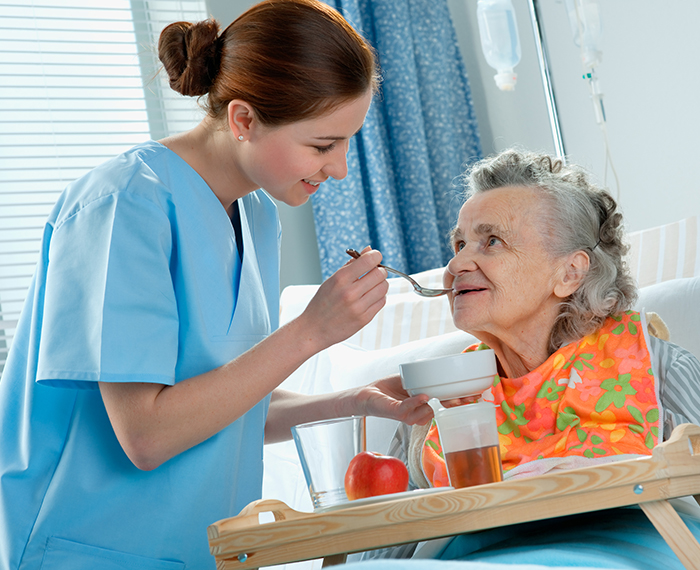
Understanding the Role and Responsibilities of a Home Health Aide. Discover The important role of home health aides! Learn about their key responsibilities & how they provide vital support for those in need.
Understanding the Role and Responsibilities of a Home Health Aide
Definition of Home Health Aide
A home health aide serves crucial purpose within healthcare system. These professionals provide direct care within clients’ homes. Supporting recovery and enhancing quality of life. Their primary focus revolves around assisting individuals with daily activities. Medical needs. And companionship.
Various skill sets equip these aides for challenges faced daily. Knowledge about personal care. Hygiene. Meal preparation. And monitoring health conditions forms foundation of work. Empathy and patience play significant roles in successful interactions with clients. Fostering trust and rapport.
Home health aides operate under strict guidelines while ensuring safety and comfort during caregiving. Essential training programs exist. Preparing them for multiple responsibilities. Making significant impact on clients’ wellbeing.
Core Responsibilities of Home Health Aides
Home health aides play diverse roles. Ensuring holistic care. Encompassing physical. Emotional. And social aspects. Duties often vary based on individual needs but generally include assisting with bathing. Grooming. Dressing. And toileting. Aides often assist clients with medication reminders. Helping maintain a consistent routine.
Meal preparation stands another critical responsibility. Aides prepare nutritious meals tailored according to dietary restrictions. Ensuring clients’ health needs are met. Close attention must be paid during meal times. Especially for clients with swallowing difficulties or special needs.
Accompanying clients during medical appointments or recreational activities fosters a sense of independence and social interaction. Aides often document clients’ conditions and report changes. Ensuring proper communication with healthcare professionals.
Essential Skills for Home Health Aides
Many essential skills contribute to a home health aide’s effectiveness. First. Strong communication abilities enable aides to connect well with clients. Families. And medical staff. Good listening skills ensure that clients feel heard. Enhancing relationships and improving care quality.
Empathy forms a vital part of successful caregiving. Aides frequently face clients with various emotional needs. Guiding them through difficulties with patience and compassion. This emotional connection often leads to better response from clients. Encouraging active participation in their care plans.
Additionally. Excellent time management assists aides in balancing multiple responsibilities throughout their day. Prioritizing tasks while maintaining flexibility helps ensure all needs are met efficiently and effectively.
Training and Certification Requirements
Proper training prepares home health aides for challenges encountered during caregiving. Most states require candidates to complete training programs. Which include classroom instruction and handson experience. A variety of courses cover important topics such as anatomy. Nutrition. Infection control. And patient rights.
Obtaining certification can enhance job prospects for aspiring aides. Many organizations offer certification programs. And some states mandate completion before providing care. Certification demonstrates professionalism and commitment qualities that can help during job searches.
Continuous education opportunities exist. Enabling aides to stay updated on best practices within field. Workshops and specialized training sessions. Focusing on areas such as dementia care or palliative support. Provide valuable knowledge and skills necessary for improved client care.
Work Environment and Settings
Home health aides typically work within clients’ residences. But settings can vary widely. Some may provide care within assisted living facilities or nursing homes. Whereas others may support clients situated in community housing. Flexibility remains paramount as aides adapt to numerous environments.
Routine shifts often involve working with multiple clients throughout day. Aides often face unpredictable schedules due to unpredictable nature of healthcare. Flexibility in availability sometimes leads to more job opportunities and fulfilling experiences.
Collaboration with family members forms crucial part of work environment. Engaging families enables better understanding of clients’ specific needs. Promoting effective care strategies that enhance overall satisfaction.
Challenges Faced by Home Health Aides
Although rewarding. This profession presents unique challenges. Emotional strain arises when aides face clients with severe illnesses or terminal conditions. Developing resilience alongside effective coping strategies can alleviate stress. Fostering mental wellbeing.
Physical challenges may arise as aides assist clients with limited mobility or require assistance during transfers. Maintaining proper body mechanics helps minimize risks associated with injury and ensures safety for both aides and clients.
Professional isolation represents another common obstacle. Aides often work independently. Away from traditional healthcare settings. Building support networks or joining relevant associations can provide valuable resources and emotional support.
Benefits of Being a Home Health Aide
Numerous benefits accompany roles of home health aides. Including flexibility in scheduling. Many aides enjoy parttime or fulltime positions that provide options for balancing professional and personal responsibilities.
Meaningful connections formed with clients often contribute significantly to job satisfaction. Witnessing clients’ progress and positive outcomes fosters a sense of accomplishment and motivation as aides continue their work.
Competitive salaries and opportunities for advancement also characterize this field. Aides who pursue additional training. Certifications. Or specialized skills may qualify for higherpaying positions or expanded responsibilities within healthcare systems.
Key Features of Home Health Aide Role
- 👩⚕️ Direct client care and assistance
- 🍲 Meal preparation tailored to dietary needs
- 💊 Medication reminders and management
- 🧼 Personal hygiene support
- 🤝 Emotional support and companionship
- 📋 Documentation of client progress
- 🌍 Flexibility in work settings
Comparison: Home Health Aide Responsibilities
| Responsibility | Home Health Aide | Personal Care Assistant |
|---|---|---|
| Personal Care | 🛁 Assists with bathing. Grooming | 🛀 Basic assistance with hygiene |
| Health Monitoring | 📊 Monitors vital signs | 📝 Records observations without reinstating |
| Meal Preparation | 🍽️ Prepares specialized meals | 🥡 May assist with meal cleanup only |
Personal Experiences Working as a Home Health Aide
Having experienced role of home health aide firsthand. Various challenges and rewards stand out. Each day involved meaningful interactions with clients. Allowing me to form strong relationships. Adopting flexible approaches assisted in addressing unique needs encountered regularly.
Witnessing each client’s progress brought unparalleled fulfillment. Observing small victories. Such as regaining independence in daily tasks. Often provided motivation amidst demanding responsibilities. This commitment emphasizes importance of empathy throughout one’s work life.
Continuous lessons learned within this profession significantly shaped personal growth as well. Developments in patience. Resilience. And communication skills enhanced not only abilities as an aide but also everyday interactions within wider context of life.
For further insights about home health aides. Visit this helpful resource or explore more on key responsibilities. Connect deeper with caregiving journeys by exploring more on our platform.

What are The primary responsibilities of a home health aide?
A home health aide assists individuals with daily living activities. Such as bathing. Dressing. Grooming, & meal preparation. They may also help with light housekeeping. Medication reminders, & companionship.
Who typically needs The services of a home health aide?
Individuals who are elderly. Disabled. Or recovering from illness or surgery may require The services of a home health aide To maintain their independence & quality of life at home.
What qualifications are necessary To become a home health aide?
Most home health aide positions require a high school diploma or equivalent. Many also complete a training program & obtain certification. Which may include handson experience & coursework in patient care.
How does a home health aide differ from a nurse?
While both professionals provide important healthcare services. Home health aides primarily assist with daily living tasks & nonmedical care. Whereas nurses provide medical care & oversee patient health needs.
Can home health aides provide medical care?
Home health aides are not licensed To perform medical tasks; their role is To assist with personal care & support. Medical care is typically provided by licensed healthcare professionals. Such as nurses or therapists.
How do I find a qualified home health aide?
You can find qualified home health aides through home care agencies. Healthcare providers. Or by checking local listings. It’s essential To verify credentials & conduct interviews To ensure The right fit for your needs.
What settings do home health aides work in?
Home health aides primarily work in clients’ homes but may also provide care in residential facilities. Assisted living communities. Or during hospital discharge To assist with The transition back home.
Are home health aide services covered by insurance?
Coverage for home health aide services can vary based on The type of insurance plan. Medicare. Medicaid, & some private insurances may cover certain home health services. So it’s important To check with your insurer.
What is The typical pay rate for a home health aide?
The pay rate for home health aides varies by region. Experience, & specific duties. On average. Pay rates range from minimum wage To a few dollars above. With variations based on location & demand.
What skills are important for a home health aide To possess?
Important skills for a home health aide include empathy. Communication. Patience. Organization, & The ability To follow instructions. Physical stamina & adaptability To different home environments are also crucial.
How many hours a week does a home health aide typically work?
The number of hours a home health aide works can vary widely depending on client needs. Some may work parttime a few hours a week. While others may have fulltime positions providing aroundTheclock care.
What should I expect during a home health aide visit?
During a home health aide visit. You can expect The aide To assist with personal care tasks. Provide companionship, & engage in light housekeeping. They will follow a care plan tailored To your specific needs.
Can a home health aide help with medication management?
While home health aides can provide reminders for medication schedules. They cannot administer medications or provide medical management. This task is typically performed by licensed healthcare professionals.
How do home health aides ensure patient safety?
Home health aides ensure patient safety by adhering To best practices in hygiene. Mobility assistance, & reporting any changes in a client’s condition To The healthcare team or family members.
What is The typical training for a home health aide?
Training for a home health aide typically includes classroom instruction & handson practice in areas such as personal care. Safety protocols. Communication skills, & first aid. Certification programs may vary by state.
Is there a demand for home health aides?
Yes. There is a growing demand for home health aides due To an aging population & increased preference for homebased care. Making this a stable career field with various job opportunities.
What qualities make a successful home health aide?
Successful home health aides possess qualities such as compassion. Reliability. Strong communication skills. Problemsolving abilities, & a genuine desire To help others improve their quality of life.
Conclusion
In summary. A Home Health Aide plays a vital role in supporting individuals who need assistance with daily tasks & healthcare. They are more than just caregivers; they provide companionship. Help with personal care, & ensure a safe home environment. By understanding their responsibilities. We can appreciate how important they are in promoting The wellbeing of The people they serve. Whether it’s helping someone shower. Preparing meals. Or simply offering a listening ear. Home Health Aides make a significant difference in The lives of many. Their dedication & compassion truly help To enhance The quality of life for those in need.

